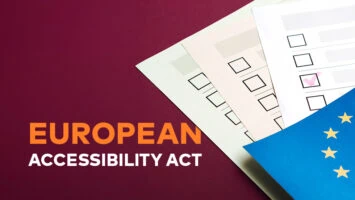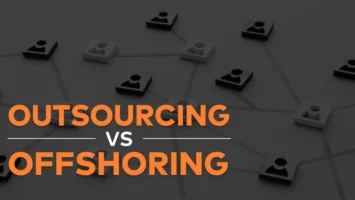Top 5 elements of a good CCPA / GDPR plugin for WordPress

Data privacy laws are constantly trying to adapt to the ever evolving technological landscape of today’s digitized world. As regular users, most of us are probably not aware of the exact provisions of the General Data Protection Regulation (GDPR) and the California Consumer Privacy Act (CCPA), but it is important to make our site compliant. Fortunately, WordPress sites can use GDPR / CCPA plugins that will ensure our website follows the necessary regulations and enable cookie law settings, but there are few solutions that simultaneously provide the necessary functionalities for both legal standards. Is every CCPA / GDPR cookie consent plugin doing a good job? Will all of them provide adequate cookie compliance? Below, we list the top 5 elements every good compliance plugin should have.
Consent log
One of the most necessary functions, which is also often requested by users is the ability to access consent tracking history – or consent log. In accordance with the EU General Data Protection Regulation, it is necessary to be able to demonstrate that website users have provided explicit consent to the processing of their data in a specific way. This feature is an absolute must for any WP GDPR compliance plugin.
Age verification
Your page does not have to be for adults only to require age verification. Perhaps there are certain parts of the site that should not be viewed by minors, or which require a user to be above a certain age to gain access. These might include registration forms and memberships, games that require real money to play, goods that can only be sold to clients over 18, etc. For example, Allegro, which is the single most popular e-commerce platform in Poland, by default allows users of all ages to browse the goods available on the site. However, when typing in an 18+ product in the search bar, the site initiates a consent popup with age verification. A plugin that has this feature will make sure your WordPress site complies with the necessary legal standards.
Pseudonymization
The practice adds another layer of protection to user privacy or data in general. It entails the creation of placeholder information, a “pseudonym”, to replace real data. To make it more clear, sometimes artists prefer to use a pseudonym rather than their real names when they publish their works of art. Similarly, during a registration process, a user might be required to provide his real name and personal details, but the information may be stored in the website’s database under a placeholder phrase, such as #USER 7901, while the real data the pseudonym refers to is hidden at a different location. By doing so, if there is ever a data breach, the thief would gain little benefit from accessing database 1 without the knowledge of database 2. Some WordPress plugins provide pseudonymization by default.
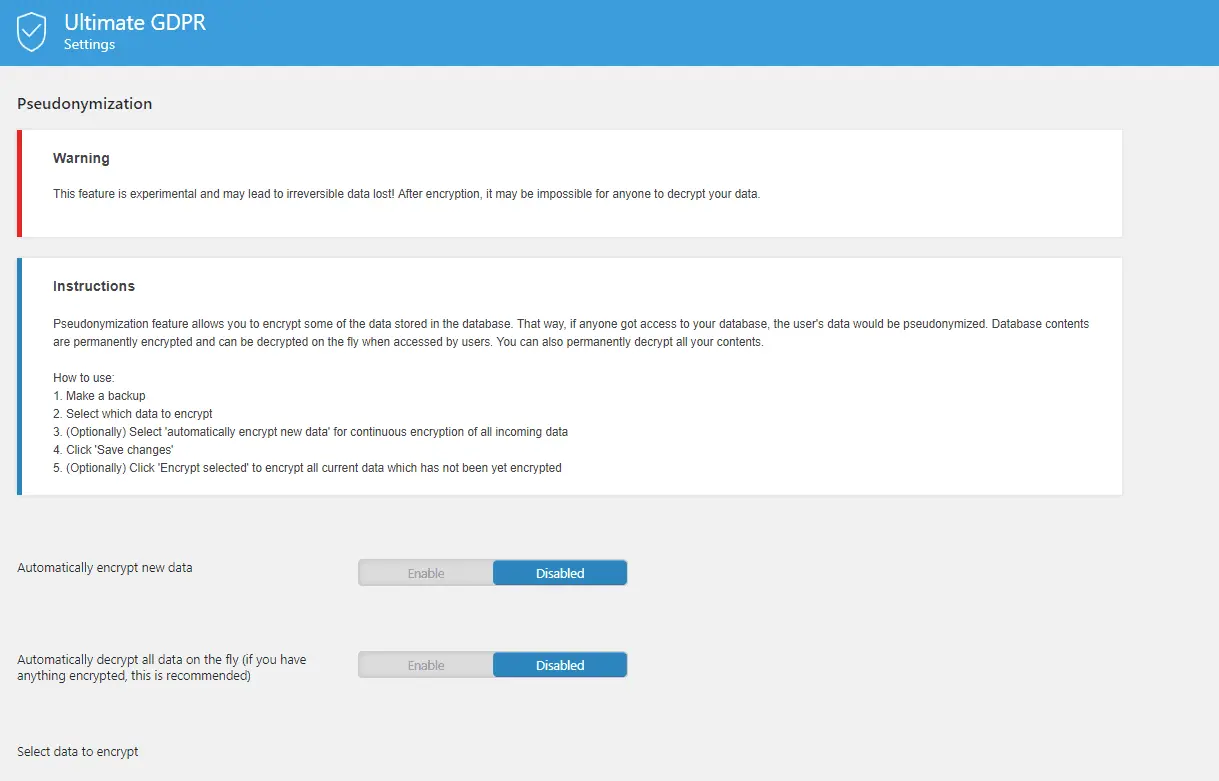
Service consent
A good compliance plugin will come equipped with custom integrations for other most popular WordPress plugins and the services they offer. This could be as simple as adding consent boxes for the many forms you may have on your WordPress website.
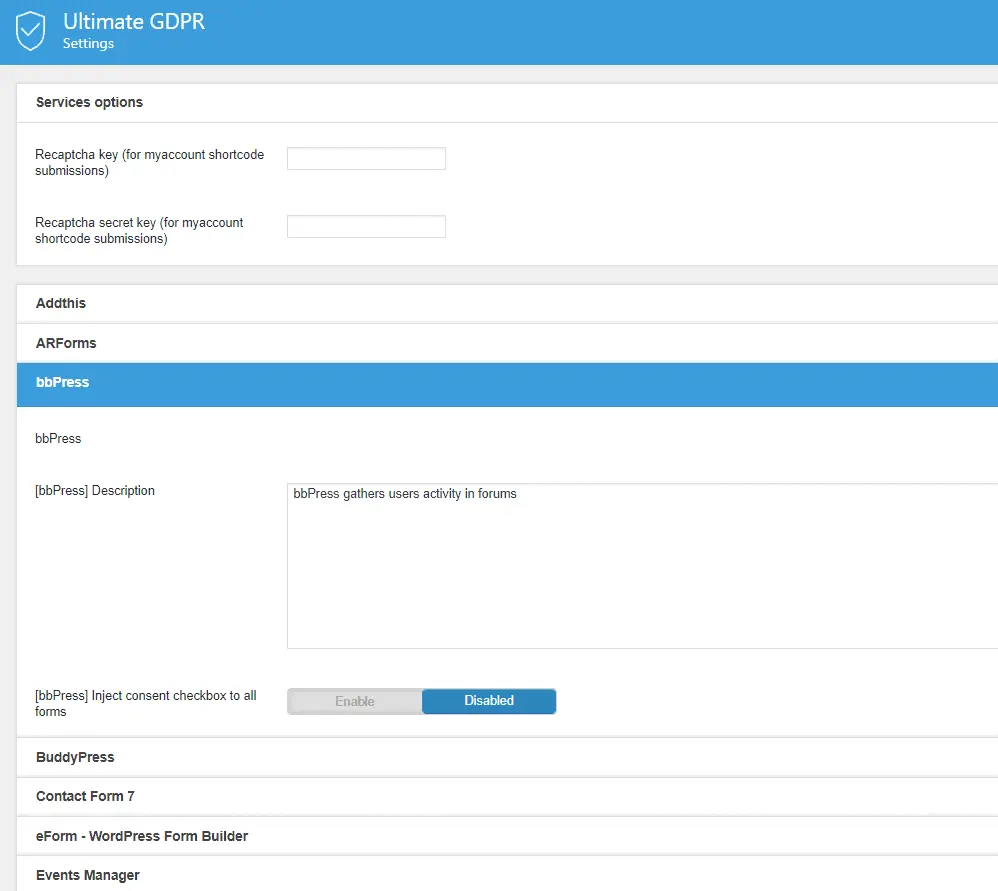
Cookie consent
This feature is probably the most recognizable one for the average user, as we are bombarded by cookie laws almost every time we enter any website. A good cookie notice will take the user quickly through the compliance process, and will often include the accept/reject all functionality as well as a cookie notice bar. Some plugins provide a cookie consent popup that effectively blocks the user from accessing the website until consent is given.
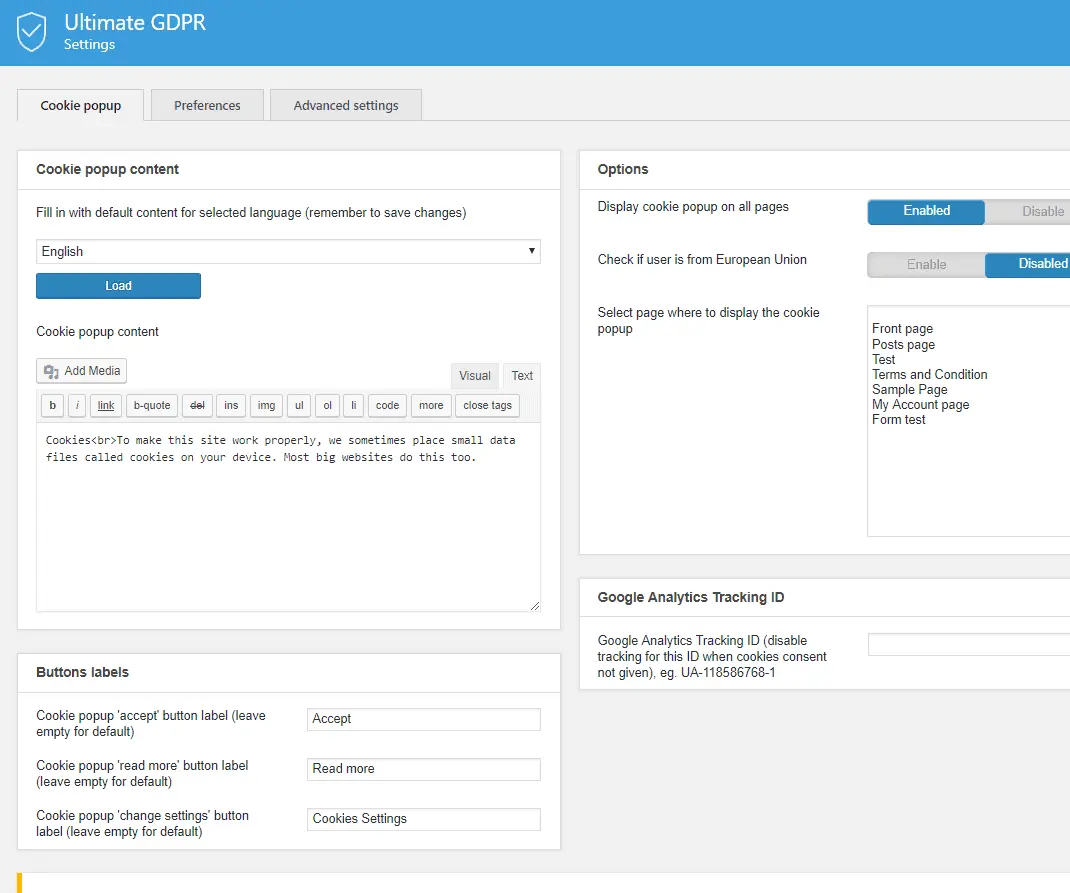
Conclusion
The law always needs some time to catch up with technological progress. We have come to a point when it is imperative to keep every website CCPA and GDPR compliant to reach a broad audience without legal issues. Fortunately, software usually needs far less time to adapt to new laws, and WordPress does a good job at providing its developers with appropriate tools. You may come across some free WordPress cookie consent plugins, but the risk of running free software is that you might lose support at some point – and as laws frequently change, with an outdated compliance plugin you might as well have none. When looking for this type of tool, make sure it provides support for both CCPA / GDPR. It is worth checking out the opinions of users who have already installed this piece of software for their WordPress website. Get your tool only from respected providers. A large number of downloaded copies combined with positive reviews are a good indication of the tool’s quality.
If you are looking for a GDPR / CCPA consent solution for your WordPress website, check out our Ultimate GDPR & CCPA Compliance Toolkit, which is an excellent plugin for WP providing everything you need to keep your site compliant. Follow the link for more information.










